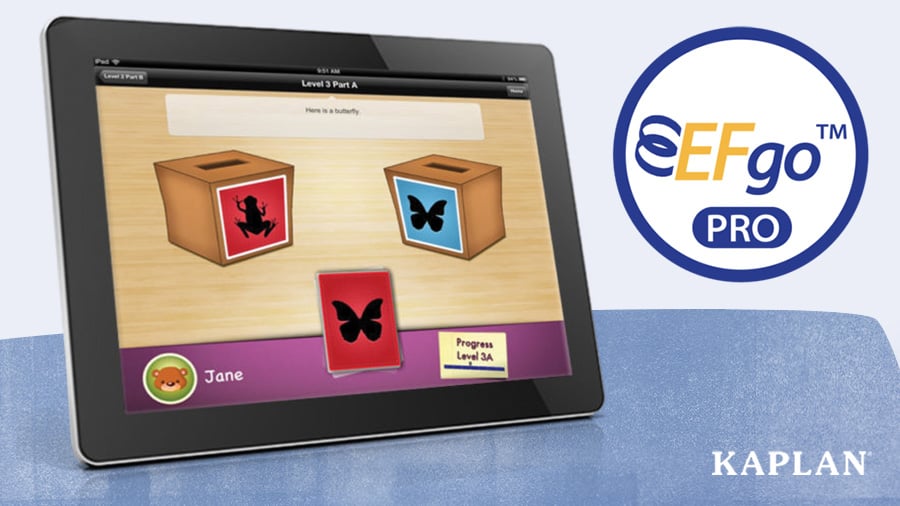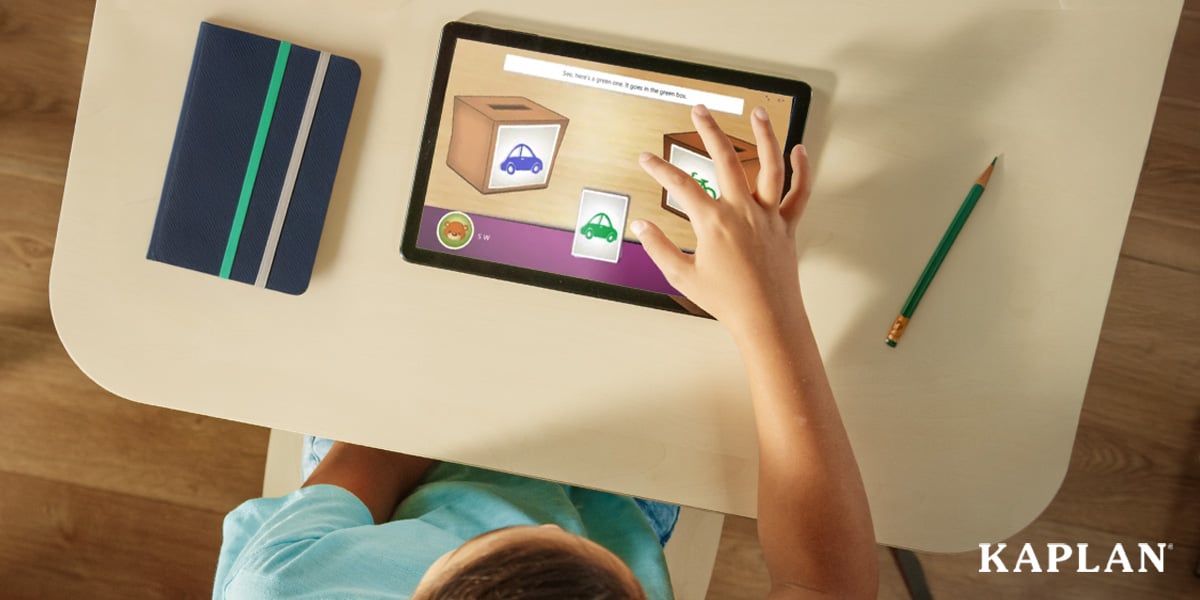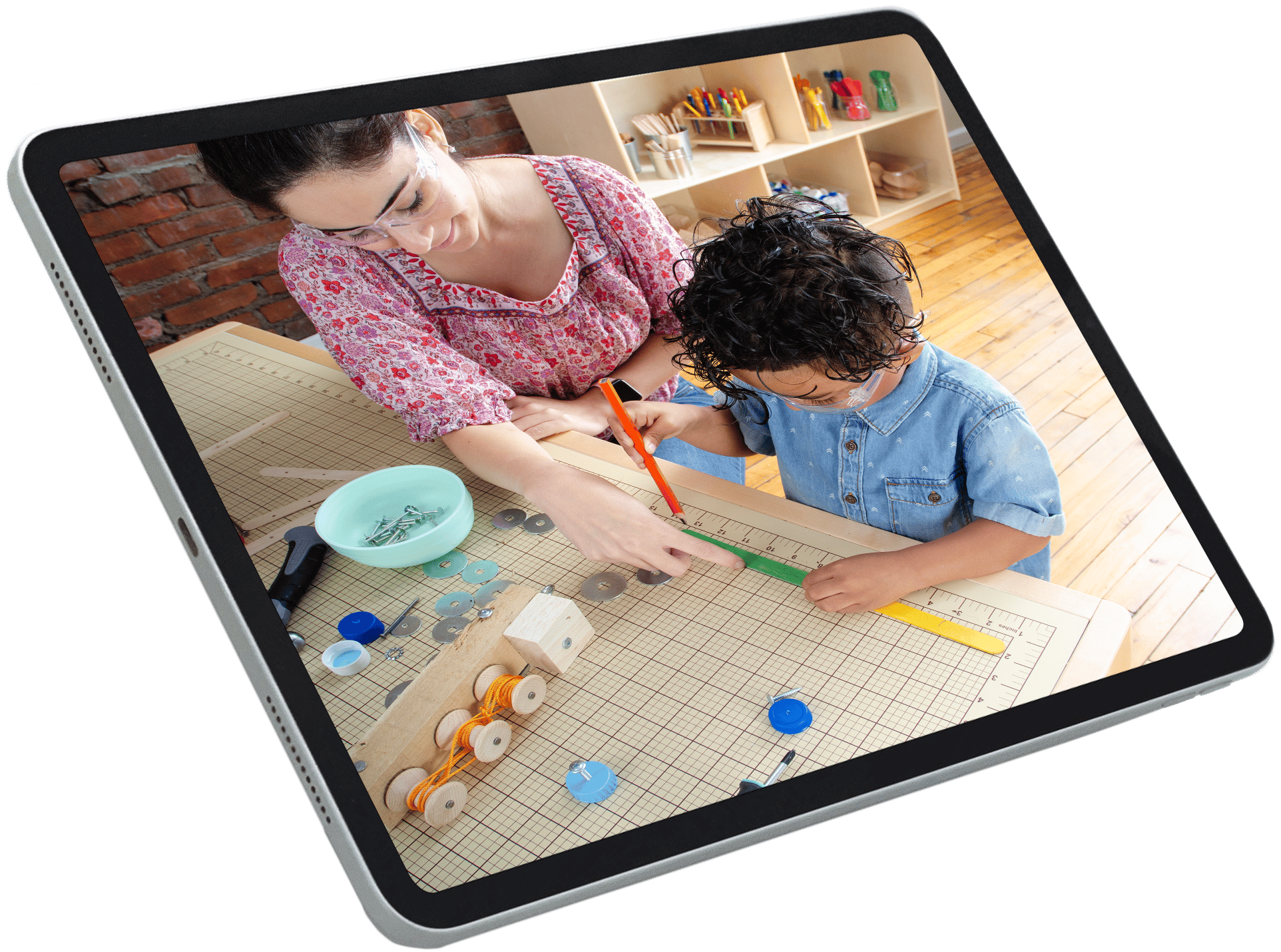Following classroom rules, switching tasks without a meltdown, and waiting in line without pushing. These are all critical executive function (EF) skills at work in young children.
But what exactly is executive function? Executive Function is a set of skills involved in consciously controlling one's thoughts, actions, and emotions. With strong executive function skills, children can plan ahead, stay focused, follow directions, manage impulses, and handle multiple tasks at once.
If you suspect a child is struggling with executive function, here's the good news: no one is born with these skills. Children develop executive function through consistent reflection and practice—starting as early as age two and continuing throughout early childhood. Keep reading to learn the science behind executive function, why it matters for young learners, and how to assess these skills in the children you serve.
What is executive function (EF)—and what's the science behind it?
Executive function, or the brain's "air traffic controller," is a set of brain-based skills that help control our attention, thoughts, emotions, and behavior. We use these skills to navigate ordinary, day-to-day tasks—and persist through whatever challenges life throws our way.
Though they may seem simple, these skills are one of the most significant indicators of how well a child will do in and outside the classroom. Reflection Sciences sees executive function as the root of academic success and social-emotional development. Research even shows that it can be a better predictor of success in these areas than IQ.
There are three key components of executive function:
1. Working memory: This involves holding information in your mind so it can be used to guide behavior. For young children, this can be recalling instructions for a learning activity or remembering to raise their hand instead of blurting out answers.
2. Inhibitory control: This involves ignoring distractions and inhibiting impulsive responses. Some examples are staying focused on a task despite distractions or resolving conflicts using words, not hands.
3. Cognitive flexibility: This reflects children's ability to shift or switch their thinking and attention between different tasks or operations. This can be approaching the same problem from a different angle or considering someone else's perspective.
Executive function skills rely on whole-brain networks to grow and strengthen over time. The prefrontal cortex plays a central role by linking parts of the brain responsible for emotion, attention, and memory. As children's brains grow, they build stronger, more complex connections that help boost their executive function skills. This is why consistent reflection and practice are crucial at a young age.
What role does executive function (EF) play in early childhood?
When children start school, they're expected to have a few key executive function skills under their belt. Skills like sitting still, paying attention, and following directions don't just affect how well children do in kindergarten. They also shape how they learn, connect with others, and grow throughout childhood and into adulthood.
But it takes time for executive function skills to develop. Young children need plenty of practice and support right from the start. Educators can reinforce executive function skills as early as 12 months through simple activities like sorting shapes and pretend play. As they grow from toddlers into preschoolers, they'll take on more complex tasks to continue boosting their executive function.
What's more, the most critical development happens in earlier years—between the ages of 3 and 5—when the brain is growing rapidly. Investing in these skills early gives children a strong start, setting the stage for success in school, relationships, and life.

How can we measure executive function (EF) in young children?
High-quality early childhood programs are key to helping all children develop the executive function skills they need to thrive in school and beyond. But first, you must understand who needs support, and the type and level of support that would be most helpful.Enter the Minnesota Executive Function Scale (MEFS). The MEFS is the only digital, research-backed, and standardized tool available today for measuring core EF skills. It's validated for children ages 2-12, and reliably tracks executive function growth over time—no matter a child's background or where they live.
The tool uses EFgo™, a digital card-sorting game that encourages learning through play by providing a direct behavioral measure of executive function skills. The intuitive, game-like interface makes testing easy and fun for young children. It can also be set to the appropriate age level to adapt to each child's needs.
Here's why MEFS and EFgo™ stand apart from other executive function measures:
- Trusted and evidence-based. The MEFS has been tested, refined, and validated using data from over 100,000 assessments. That means it's a reliable tool for measuring executive function development across age groups, demographics, and environments.
- Easy to administer. The assessment only takes five minutes to complete, and the "game-like" experience keeps children engaged the entire time.
- Supports early intervention. Children as young as 24 months can use EFgo™, setting a strong foundation for success in both school and life.
- Provides personalized intervention. Each child receives customized activities and digital games to improve their EF skills. The tool tailors the activities to the child's most recent assessment results for targeted support.
Assessing executive function skills helps you understand how children learn, manage emotions, and get along with others. With this information, you can tailor instruction, meet each child's needs, and create a classroom where all children thrive.
How is EFgo™ used in early childhood programs?
EFgo™ helps you measure each child's current level of executive function to begin nurturing these skills in your early childhood program. The child completes the assessment on a touchscreen device, while a teacher or trained staff member observes to ensure the child understands the instructions and remains engaged throughout the game.When complete, EFgo™ automatically scores the assessment, and results are immediately available via the child’s assessment report. The tool also provides personalized games and activities tailored to the child’s most recent scores.
Each EFgoPro™ Organization Annual License from Kaplan provides one license per child in your classroom, which includes:
- The MEFS™ measure of executive function (EF) to assess a child's current skills.
- Tier 1 EF improvement curriculum with personalized digital activities, leveled exercises, family engagement tools, and a digital curriculum calendar.
- Digital EF practice games tailored to the child's most recent assessment results to reinforce targeted skills.
- Professional development and training—including an online training webinar and online access to professional development courses EF-101 and EF-201—and an EF Measurement certification course for teachers.
- Implementation support, including three check-in meetings with a program implementation expert.
- Classlink and Clever rostering integrations to automatically sync data across student information systems (SIS).
- Much more, like helpful resources, customer support, and reporting!
One powerful example of EFgo™ in action comes from New Mexico's new Pre-K Executive Function Program. The state's Early Childhood Education & Care Department (ECED) recently launched an initiative to give early childhood educators and administrators across the state access to professional development on EF, the EFgo™ Assessment Tool, and EF development in the classroom.
EFgo™ delivers immediate, data-driven insights into children’s executive function, helping NM ECECD—and programs like yours—build core skills that set children up for success in kindergarten and beyond.
Kaplan offers EFgo™ to measure and improve executive function in your early childhood program.
Executive function shapes how children manage everyday challenges, whether in the classroom, at home, with peers, or in the world around them. Building these skills early lays a strong foundation for lifelong success in every domain, including reading and math.
Visit our website to explore our EFgo™ products. You can also contact your local Kaplan Representative, who can answer your questions and help you learn more about implementing EFgo™ in your program.

